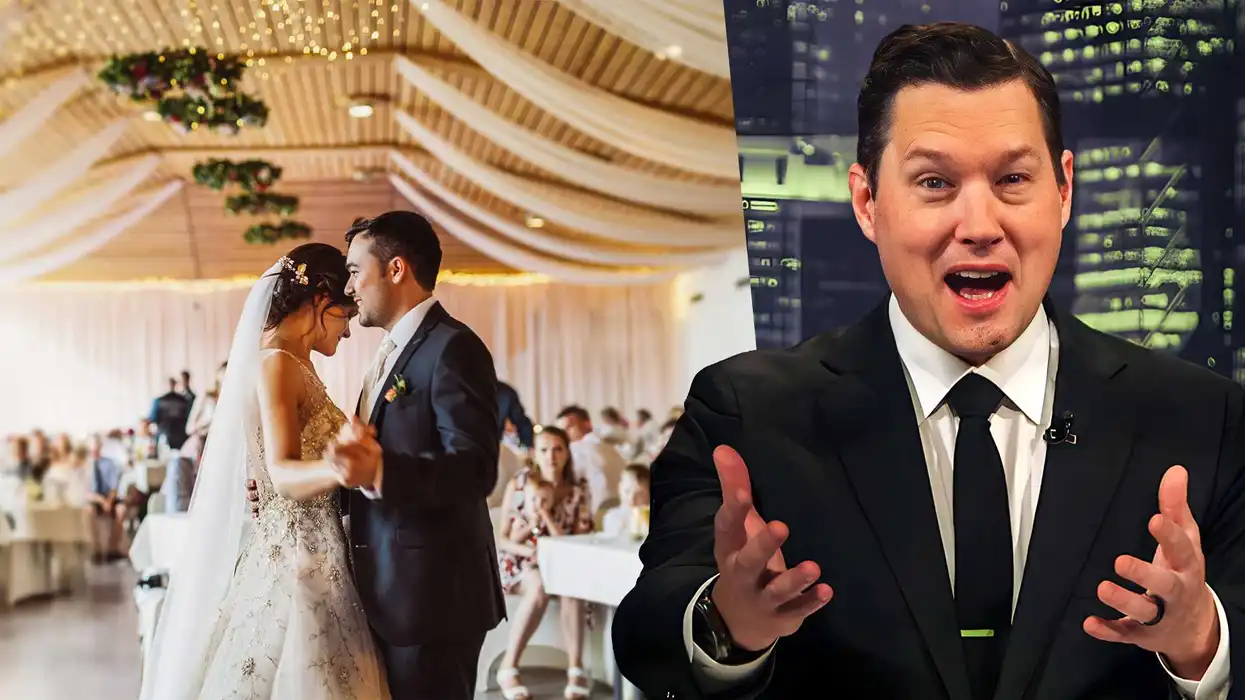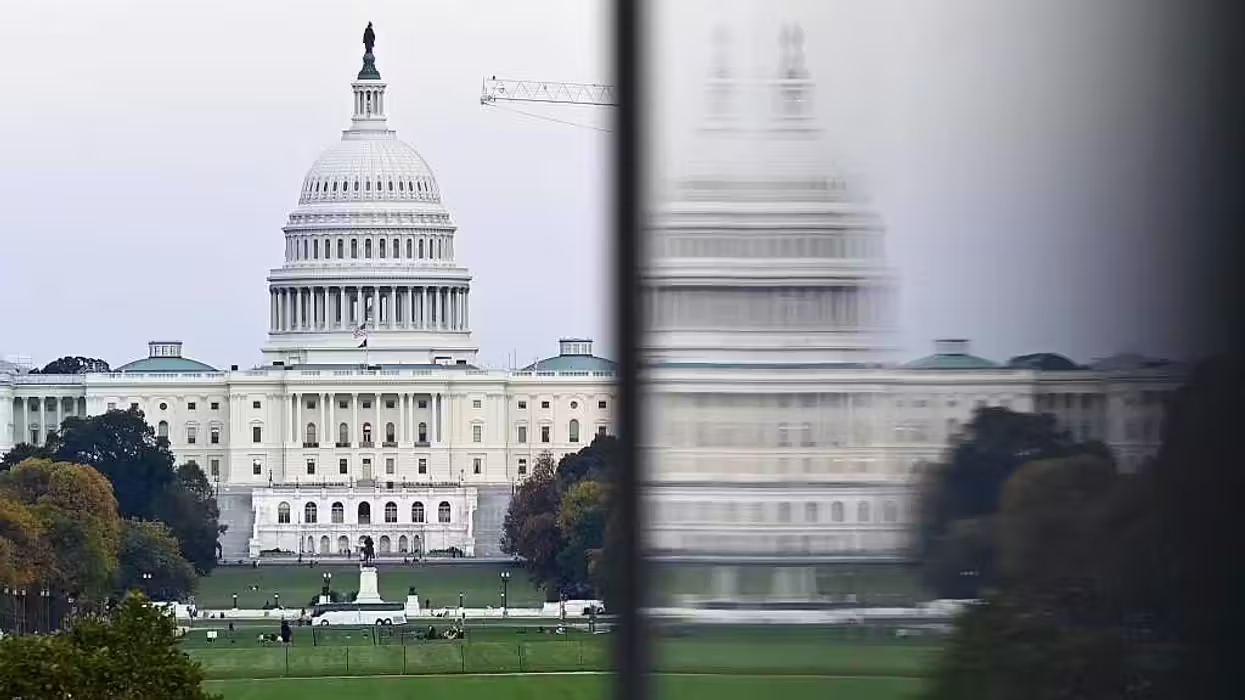Russia's intelligence agency has infiltrated almost every level of Ukraine's government, particularly its clandestine service, since the ouster of pro-Russian President Viktor Yanukovich, making it extremely difficult for the United States and its European allies to keep secrets from the Kremlin as it continues to destabilize the fragile region, current and former U.S. officials told TheBlaze.
 Russian special forces storm the Ukrainian Belbek Airbase near Belbek, Crimea, March 22, 2014. (Getty Images)
Russian special forces storm the Ukrainian Belbek Airbase near Belbek, Crimea, March 22, 2014. (Getty Images)
Retired Adm. James G. Stavridis, the former commander of U.S. European Command and NATO's supreme allied commander for Europe, told TheBlaze that he was "generally aware" of the situation regarding the infiltration of Russia spies in the Ukrainian government, as well as pro-Russian loyalists within Ukraine's Foreign Intelligence Service.
The weight of the argument, however, is on the side of working together to share intelligence with Ukraine, despite Russia's attempts to infiltrate the U.S.'s capabilities and resources, Stavridis said.
He said the United States "could provide [Ukraine] a picture of what the Russians are doing using overhead imagery, using our intelligence collection capability, using our cyber capability."
"I think as long as we don't reveal sources, talking to the Ukrainians about what's occurring, we enhance their ability to see what's happening. In a certain sense, that's stabilizing — knocks down misinformation — and if some of that gets back to Russia, it's only information about them," Stavridis said. "So long as we're careful that the source and the methods are protected … it's a fairly close call, but I think the balance of the argument is on sharing intelligence."
[sharequote align="center"]"I think the balance of the argument is on sharing intelligence."[/sharequote]
Secretary of State John Kerry, testifying before a Senate panel on Tuesday, also noted that subversive Russian operations to destabilize the region for Moscow's benefit continue to make the situation more dire by the day. He said the pro-Russian demonstrators who raided the regional government headquarters in Kharkiv on Sunday and the Donetsk regional administration on Monday were part of a contrived plan by Russia to encroach further into Ukraine.
 U.S. Secretary of State John Kerry shakes hands with Russian Foreign Minister Sergey Lavrov before the start of their meeting in Paris about the situation in Ukraine, Sunday March 30, 2014. (AP Photo/Jacquelyn Martin, Pool)
U.S. Secretary of State John Kerry shakes hands with Russian Foreign Minister Sergey Lavrov before the start of their meeting in Paris about the situation in Ukraine, Sunday March 30, 2014. (AP Photo/Jacquelyn Martin, Pool)
The "efforts are as ham-handed as they are transparent, and quite simply what we see from Russia is illegal and illegitimate effort to destabilize a sovereign state and create a contrived crisis," Kerry said. "Russia's clear and unmistakable involvement in destabilizing and engaging in separatists activities in Ukraine is deeply disturbing."
Current and former officials told TheBlaze that Russian intelligence in the region goes beyond merely busing in Russians to protest at demonstrations in the eastern part of the country, but that they have been behind many of the pro-Russian uprisings in the east. Russia's Federal Security Service — formerly the KGB — has also aided in wiretapping calls from senior Western and European officials in the region and exposing them. In one widely publicized incident, U.S. Assistant Secretary of State for European and Eurasion Affairs Victoria Nuland was caught saying on a call with U.S. Ambassador to Ukraine Geoffrey Pyatt about the future of Ukraine, “F*** the EU.”
Putin's tactics - like moving 50,000 troops to the eastern border of Ukraine but then using his resources to rally more pro-Russian "activists" to seize official government buildings this past week, keeps world leaders guessing and that uncertainty forces western nations to play covert-catch up "spending money and resources in an effort to gain knowledge on his next moves," said a Military official, with knowledge of operations in the region.
"I believe a good number of Ukrainian intelligence officers report directly to the Federal Security Services ( Russia's CIA)," the military official added.
Ambassador Ivo H. Daalder, president of the Chicago Council on Global Affairs and former U.S. representative to NATO, said the U.S. is looking at a situation where "Russia can move into Ukraine within 12 hours."
He said despite the difficulties, the U.S. should stand firm against any type of Russian demands, noting that Putin is using everything at his disposal to expand his reach.
"I don't believe that the point here is for Russia to behave badly and then to be paid for something they shouldn't have done in the first place," Daalder said. "And that includes the issue of whether or not Ukraine should be a member of NATO and have an economic relationship with the European Union. Frankly, that isn't up to the United States or even NATO to decide — it certainly isn't up to Russia to decide. It's up to Ukraine to decide."
Daalder said Ukraine's future "it is not something the European Union should or can negotiate over Ukraine's head with the Russians."
[sharequote align="right"]"It's like walking on hot coals -- the U.S. and Europe are left dodging the enemy."[/sharequote]
A former U.S. official who is still closely connected with the region and who has knowledge of Western efforts told TheBlaze that there is no doubt that "Russian intelligence officers are doing whatever they can within Ukraine to thwart efforts by the West to resolve the crisis."
He said they "have invested an enormous amount of resources to track our efforts making it difficult because it is their territory; they continue to spy on us, to have the upper hand. It's like walking on hot coals -- the U.S. and Europe are left dodging the enemy."
Ivan Krastev, chairman of the Centre for Liberal Strategies in Sofia and a permanent fellow at the Institute for Human Sciences in Vienna, wrote in a piece for Foreign Affairs magazine last month that Moscow wants to topple the new regime in Kiev.
Krastev said Putin views the pro-West government "as being made up of radicals who won’t survive more than several weeks in power."
"By pressuring the regime with an invasion and by heightening the fears of the Russian speakers in Ukraine’s south and the east, Putin will likely get what he wants," Krastev wrote. "His strategic goal is not to cut off Crimea, as recent events might suggest, but to bring about a constitutional crisis that will remake Ukraine into a confederate state with a very weak center, the eastern part of which will be more integrated with Russia and the western part closer to Poland and the EU. Realizing that he has lost Kiev, in short, Putin seems to want to move Ukraine’s center of power elsewhere. The worst part of all this is that Putin knows that he can likely get away with it."
A U.S. intelligence official with direct knowledge of the situation in Ukraine said he doesn't doubt that Putin's goal is to take Ukraine far from the throngs of NATO and infiltrating the Ukrainian government is already part of those plans.
“The possibility of another Russian incursion is very real,” the official said.
—
Follow Sara A. Carter (@SaraCarterDC) on Twitter

 Russian special forces storm the Ukrainian Belbek Airbase near Belbek, Crimea, March 22, 2014. (Getty Images)
Russian special forces storm the Ukrainian Belbek Airbase near Belbek, Crimea, March 22, 2014. (Getty Images)





